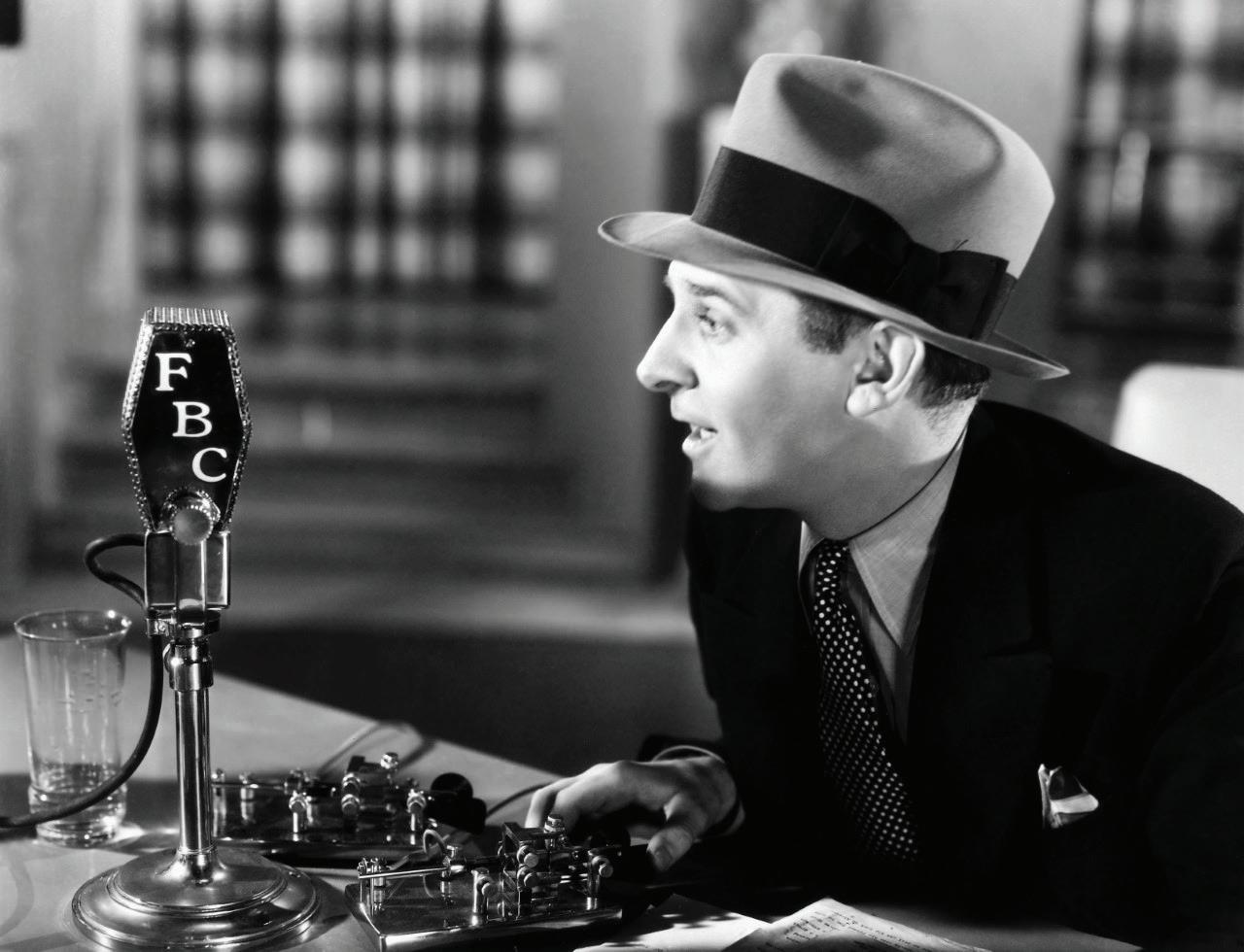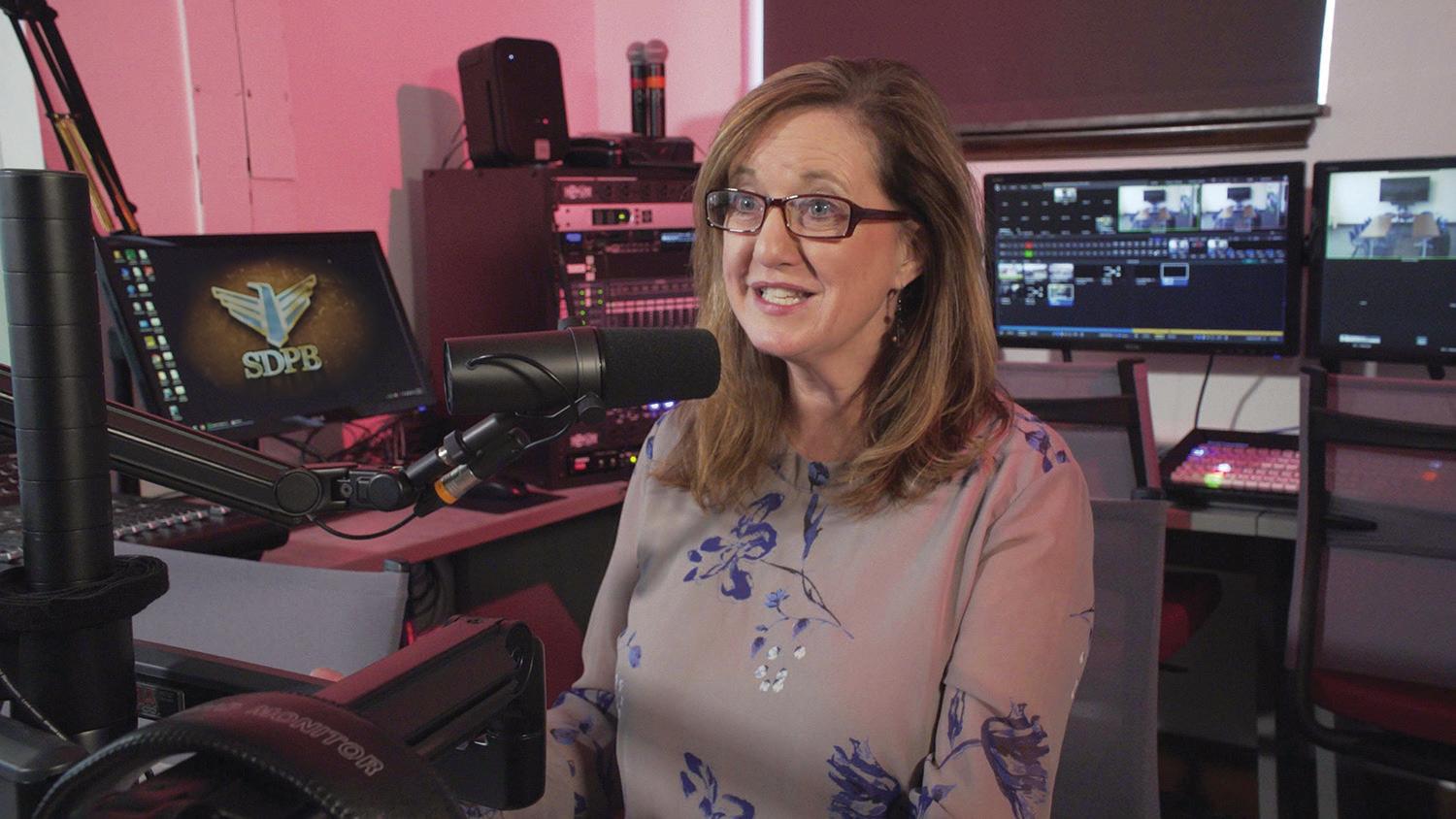
4 minute read
SDPB: Swimming Against Tidal Waves of Fast, Flash News
from SDPB October 2020 Magazine
by SDPB
This month SDPB premieres American Masters Walter Winchell, starring Stanley Tucci as Winchell, the newspaper columnist, radio commentator and television personality who pioneered the fast-paced, gossip-driven, politically charged journalism that dominates today. At his peak, his audience was 50 million. SDPB Director of Radio Cara Hetland discusses the necessity of maintaining restraint in the storm.
Katy Beem: Winchell may not be very well-known to the current generation of journalists, but in journalism school, we extensively studied the lasting impact his exploitative brand of “reporting” had on the media. Winchell became a millionaire – during the Depression! – because the appetite for sensationalized news among the American public can be so strong. How do you see Winchell’s impact continuing to dominate today?
Cara Hetland: “The outrageous sells. The gossipy ‘can it really be true’ headlines catch our attention. It’s more difficult now in a social-media dominated, 24/7 news cycle to separate fact from fiction. I’ve participated in several presentations about fake news. I start by asking a series of questions. One is if they stop and think if it’s true before they forward something they see on Facebook. Taking the time to check the source, check the facts, and being certain something is true isn’t something we do on social media. And we should. But that’s how everything spreads so quickly. I believe we all need to take a look at what lens we’re reading news through. I concede we all have bias, but which bias do we use when we judge if a story is real? If we agree with what’s being said, then it must be true; if we disagree then it must be fake. But that’s not always the case. I tell people we need to be honest with ourselves, and judge for ourselves and make a conscious effort to not spread something that’s false or harmful to other people.”

Cara Hetland.
KB: Yes, sensation sells. It’s the water we swim in. When you oversee the SDPB news team, how do we keep ourselves from swimming into that lane?
CH: “It’s easy – we swim in our journalism lane. We ask questions, we look for truth because we know we have a responsibility to provide that truth. Truth matters. Conversations are important. Giving perspectives from different viewpoints leads to understanding and acceptance and just might make a difference. We give voice to the voiceless and hold elected officials accountable. If a news source is swimming in the sensation lane perhaps find a different news source.”
KB: We thought the news cycle was fast before. Then came the Trump Administration and the COVID pandemic where stories are literally developing by the hour. How is the news team handling this logistically, on a day-to-day basis?
CH: “We had a plan-of-action in place before the first positive case in South Dakota. We had talked about it and were ready. We spread our staff out to make sure everyone was safe; we used the tools we had to improve our communication; and we put our nose down and got to work. It was a team effort from every department to make sure the information on our air was timely and accurate. We looked out for one another for signs of fatigue and encouraged time off. We are still separated and doing our best to stay safe and healthy. I couldn’t be more proud of the entire network pulling together to make all aspects work.”
KB: What are the goals for news-gathering and reporting for South Dakotans in this current climate?
CH: “I don’t believe this climate is really in South Dakota. I think the reporters in this state are topnotch and do the best they can. The problem comes when we’re treated as evil or fake. I hear time and time again that local news matters most. The reporters on my team live in their communities and care about what happens in South Dakota. We don’t play “gotcha journalism,” and we don’t set out to make anyone look bad. We bring you the information we receive, and we share different perspectives so you can make your own decisions on a topic.
KB: The NPR Public Editor is basically the only ombudsman employed by a major media outlet these days. How much work does it take to meet NPR’s journalistic and ethical standards? And, do you have any examples of items or stories that did NOT go to air because of ethical concerns?
CH: “We’ve seen several stories by other organizations saying Amazon is building a distribution center in Sioux Falls. Really what that story says is Amazon signed on to a grant proposal for money to expand an area for a possible distribution center. Amazon confirmed to us that’s a standard practice for many communities and not a sure thing for Sioux Falls. There’s not confirmation. We chose to not jump on the bandwagon with a story because of Amazon’s statement. We decided it’ll be a story when they break ground. I believe what we do best is provide analysis and explain what issues really mean. We aren’t about being first with everything – we’re about telling South Dakotans what it means and how it will impact their lives.”
KB: Anything to add?
CH: “Journalism is under attack, partly because it’s easier to get one-sided information than multiple perspectives. So often news organizations are judged by one interview that airs and not the whole program. As a society we need to ask more questions and seek out answers. As individuals we need to know what we believe and why that is and admit that’s why we look at things the way we do. And be understanding when someone thinks differently.”
Walter Winchell would likely disagree.
American Masters: Walter Winchell premieres on SDPB1 Tuesday, Oct. 10, at 9pm (8 MT).

Walter Winchell.
GRANGER










